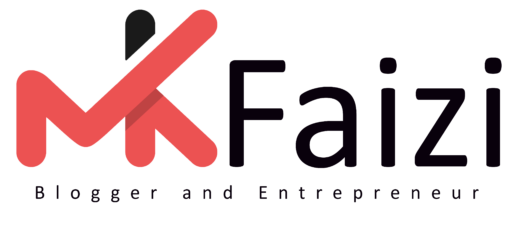Ready to start writing?
Don’t wait—begin your freelance writing career today!
Join the world of freelance writing for beginners now.
So, you’re in the right place. In this article, we’ll explore the most rewarding 10 Freelance writing jobs for beginners, giving you a roadmap to start your writing career.
The Appeal of Freelance Writing
Before we dive into the specifics of various writing niches, let’s understand why freelance writing is an enticing choice for newcomers.
Freelance writing offers a world of benefits, including:
- Flexibility: Set your own work hours and location.
- Creative Expression: Unleash your creativity through words.
- Income Potential: Earn a substantial income based on your dedication.
- Independence: Be your own boss and manage your career.
1. Content Writing
What Is Content Writing?
Content writing involves crafting engaging and informative content for websites, blogs, and social media. It’s a versatile field where you can create articles, blog posts, and social media updates.
As a beginner content writer, you’ll be responsible for:
- Researching topics and keywords.
- Writing clear and concise content.
- Proofreading and editing your work.
- Meeting deadlines and client expectations.
How to Get Started in Content Writing
Getting your foot in the door as a content writer may seem daunting, but it’s entirely achievable. Here’s how you can begin your content writing journey:
- Build Your Portfolio: Start by creating a collection of writing samples that showcase your skills.
- Freelance Platforms: Register on freelancing platforms like Upwork, Freelancer, or Fiverr to find your initial clients.
- Specialize: Consider specializing in a niche, such as travel, technology, or health, to stand out in the crowded market.
2. Copywriting
Understanding Copywriting
Copywriting is the art of persuasive writing. It’s the driving force behind advertisements, sales pages, and marketing materials. As a copywriter, your words should compel readers to take action, whether it’s making a purchase or signing up for a newsletter.
Key elements of copywriting include:
- Crafting compelling headlines.
- Using persuasive language.
- Addressing pain points and offering solutions.
- Creating a sense of urgency.
Steps to Become a Copywriter
Becoming a copywriter is a step toward mastering the art of persuasion. Here’s how you can start your copywriting career:
- Study the Masters: Learn from renowned copywriters by reading their work and understanding their techniques.
- Build a Portfolio: Create persuasive writing samples to showcase your skills.
- Freelance Platforms: Join platforms like Upwork, where businesses often seek copywriting services.
- Networking: Connect with marketing agencies and businesses in need of copywriting.
3. Blogging
Exploring the Blogging World
Blogging is a space for sharing your thoughts, knowledge, and expertise with the world. It’s not just a hobby; it can also be a source of income through advertisements, affiliate marketing, and sponsored posts.
As a beginner blogger, you’ll need to:
- Choose a niche you’re passionate about.
- Create engaging and informative content.
- Promote your blog through social media and SEO.
Starting Your Freelance Blogging Journey
Starting a blog is the first step in your freelance blogging journey. Here’s how to get going:
- Select Your Niche: Choose a niche that you are passionate about and knowledgeable about.
- Domain and Hosting: Purchase a domain name and web hosting for your blog.
- Content Creation: Start writing high-quality blog posts that resonate with your target audience.
- Monetization: Explore ways to monetize your blog, such as Google AdSense, affiliate marketing, or sponsored posts.
4. Academic Writing
What Is Academic Writing?
Academic writing involves helping students and researchers with their academic papers, essays, theses, and research projects. It demands a high level of research, precision, and adherence to academic standards.
To excel in academic writing, you’ll need to:
- Understand various citation styles (APA, MLA, Chicago, etc.).
- Conduct thorough research.
- Maintain academic integrity and avoid plagiarism.
- Meet strict deadlines.
Initiating Your Academic Writing Career
Starting a career in academic writing can be a fulfilling choice. Here’s how to get started:
- Academic Portals: Register on academic writing platforms like EssayShark or StudyBay, which connect freelance writers with students seeking assistance.
- Specialize: Consider specializing in specific academic fields, such as psychology, business, or history, to stand out as an expert in those areas.
- Academic Resources: Familiarize yourself with academic resources like academic journals and research databases to aid your research.
5. Technical Writing
The Demand for Technical Writers
In the age of technology, technical writing is in high demand. It involves creating user-friendly guides, manuals, and documentation for products and services. Technical writers bridge the gap between complex information and the end-users who need to understand it.
To excel in technical writing, you’ll need to:
- Simplify complex information.
- Create clear and concise documentation.
- Collaborate with subject matter experts.
- Ensure user-friendliness.
Getting Into Technical Writing
Venturing into technical writing as a beginner is feasible with the right approach:
- Learn the Basics: Start by understanding the fundamentals of technical writing, including terminology and formatting.
- Online Courses: Consider enrolling in online courses that focus on technical writing.
- Create Samples: Build a portfolio by creating sample technical documents, such as instruction manuals or user guides.
- Networking: Attend technical writing conferences and connect with professionals in the field.
6. Ghostwriting
The Art of Ghostwriting
Ghostwriting involves writing on behalf of someone else without being acknowledged as the author. It’s ideal for those who prefer to stay behind the scenes while honing their writing skills.
To succeed as a ghostwriter, you should:
- Emulate the author’s voice and style.
- Maintain confidentiality and professionalism.
- Meet the author’s objectives and expectations.
- Adapt to different genres and subjects.
Beginning as a Freelance Ghostwriter
Starting your career as a freelance ghostwriter is a unique and intriguing path. Here’s how to begin:
- Build a Portfolio: Create a portfolio of ghostwriting samples that demonstrate your versatility.
- Freelance Platforms: Join freelancing platforms and look for ghostwriting opportunities.
- Client Relationships: Develop strong working relationships with clients, as trust is essential in ghostwriting.
7. Resume and Cover Letter Writing
Crafting Resumes and Cover Letters
Crafting resumes and cover letters is a unique niche in freelance writing. You’ll help job seekers present their skills and experiences effectively.
To excel in this niche, you should:
- Understand various job markets and industries.
- Write compelling and customized resumes and cover letters.
- Interview clients to gather relevant information.
- Stay updated with job market trends.
Starting Your Resume and Cover Letter Writing Journey
Beginning as a resume and cover letter writer can be rewarding for both you and your clients. Here’s how to get started:
- Samples: Create samples of well-structured resumes and cover letters that showcase your skills.
- Freelance Platforms: Advertise your services on freelancing platforms and social media.
- Networking: Connect with job seekers through networking events and online forums.
8. Proofreading and Editing
The Final Touch: Proofreading and Editing
Proofreading and editing are essential steps in the writing process. As a proofreader or editor, you’ll be the final set of eyes that ensure clarity, grammar, and correctness in written content.
To excel in proofreading and editing, you should:
- Have an excellent command of grammar and style.
- Pay attention to detail.
- Respect the author’s voice while improving the text.
- Meet deadlines consistently.
Entering the World of Proofreading and Editing
Starting your journey as a proofreader or editor is achievable with dedication and skill. Here’s how:
- Learn Style Guides: Familiarize yourself with common style guides like APA, Chicago, or The Associated Press (AP).
- Certifications: Consider obtaining proofreading and editing certifications to validate your expertise.
- Building a Portfolio: Create a portfolio with before-and-after samples to demonstrate your skills.
9. Creative Writing
Exploring Your Creative Side
Creative writing allows you to explore your imaginative side, creating stories, poetry, or other creative works.
To succeed in creative writing, you should:
- Embrace your creativity and unique style.
- Write regularly to hone your skills.
- Seek feedback from peers and mentors.
- Consider self-publishing or submitting your work to literary magazines.
Starting a Freelance Career in Creative Writing
Starting a freelance career in creative writing can be deeply fulfilling. Here’s how to initiate your creative journey:
- Create a Blog: Begin a blog or website to showcase your creative writing.
- Online Writing Communities: Join online writing communities to connect with fellow writers.
- Self-Publishing: Explore self-publishing your creative works on platforms like Amazon Kindle or Wattpad.
10. Transcription Services
Converting Audio to Text: Transcription Services
Transcription involves converting spoken audio into written text. It’s a straightforward option Freelance jobs for beginners, as it doesn’t require extensive writing skills.
To excel in transcription, you should:
- Have good listening skills.
- Type accurately and efficiently.
- Meet transcription guidelines, if provided.
- Ensure confidentiality, especially for sensitive content.
Initiating a Transcription Career
Getting started as a transcriptionist is relatively simple. Here’s how to begin:
- Transcription Software: Download and familiarize yourself with transcription software like Express Scribe or oTranscribe.
- Practice: Practice transcription with freely available audio files to build your skills.
- Freelance Platforms: Register on freelancing platforms where clients often seek transcription services.
Conclusion
In conclusion, the world of freelance writing jobs for beginners offers a plethora of options to explore and hone your writing skills. From content writing and copywriting to creative writing and transcription services, there’s a niche that suits your interests and expertise. With dedication, learning, and perseverance, you can establish a successful freelance writing jobs for beginners career.
FAQs
What skills do I need to start as a freelance writer?
Excellent writing skills
Meeting deadlines
Good communication with clients
Are there any specific tools or software I should use as a freelance writer?
Tools like Grammarly, plagiarism checkers, and writing apps can be helpful for improving the quality of your work.
How do I find Freelance writing jobs for beginners?
Utilize the Best freelance platforms for beginners like Upwork, Freelancer, or Fiverr
Network and reach out to potential clients directly
What is the earning potential for freelance writers?
Earning potential varies based on niche, skills, and experience, with some writers making a modest income and others earning a substantial living.
How can I build a portfolio as a beginner freelance writer?
Create sample articles
Guest posts on blogs
Offer services at a reduced rate initially to gain experience

